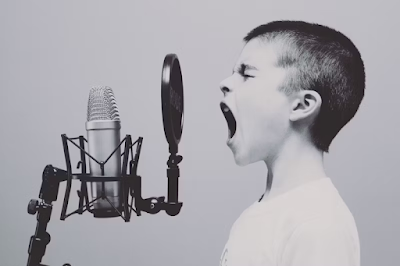A Entirely Voice-based Platform Can Save SNS from Losing Normal Users to Business Interests
Twitter (or X, as people are still trying to get used to the new name) is known for its spontaneous outbursts and text-based real-time updates to live events. The fact that it is so short, so easy to type up, and so ingrained into the culture of a community consisting of millions of equally impulsive tweeters ensures that those who have something that they have in their minds would want to record those thoughts and broadcast them into the community. Getting others to agree or denounce your impulses before you forget them yourself has proven to be quite an adrenaline rush for some.
Getting that adrenaline fix when impulsive is not always the most convenient when text has to be the medium for doing so. The assumption of Twitter is that when some impulsive thought happens, the person experiencing it can immediately pull out their phone and eloquently put the thought in coherent English prose, with constraining limits on how many characters can be used. Yes, frequent and popular tweeters are a self-selective bunch, with the platform weeding out those who are unable to get their impulses on paper in a way that resonates with others. But the process robs the voice of those who cannot write well.One potential solution is to get rid of the entire need for typing up our thoughts. With the advent of powerful AI-based voice recognition software, it has become entirely conceivable that casual banter and unorganized thoughts, recorded under situations of heightened excitement or duress, can be automatically turned into phrases that make sense for an audience that has little understanding of the background in which the original verbal outbursts were made. Outsourcing the process of formulating words would allow tweeters to be even more impulsive and quicker with output than they are with their current writing.
The user interface of Twitter can be redesigned to facilitate impulsive voice tweeting as well. Whereas the current interface requires tweeters to press the new tweet button, enter their tweet content, and then press submit, the three-step process can be drastically simplified with one-button system in which a tweeter can long-press the voice recording button and then immediately post when the button is let go. Users may put in a final check option through account settings, but amid something amazing happening, who has the time to double-check an AI-generated tweet anyway?A voice-based platform could potentially be a major game-changer for the popular social media scene. Currently, mass-sourced coverage of live events primarily comes in the form of videos posted on YouTube and TikTok. While videos indeed provide a more insightful understanding of the situation for a faraway audience, not all events can be properly recorded. Videos in concerts will only show masses of people. Videos of manmade and natural disasters that happened in a split second will only show the aftermath rather than the event itself. And too often, these events are about the "what" rather than the "why."
Facts on the ground are only valuable when they are interpreted by those who know what is happening. Experts can make their evaluations based on available video footage later on, but they can never capture the confusion, excitement, and fear that are going through the minds of the participants when the videos are created. This is not to mention that many of the participants are unlikely to be in a proper mental and physical state to capture legible videos. For them, impulsiveness is still best expressed in the fastest way humans communicate: talking.
The renewed focus on the "then-and-there" spontaneity of talking users may spur a renaissance in the social media industry. The visual focus of Instagram, TikTok, and YouTube has meant an increasing focus on editing to ensure perfection before posting. The excess post-production takes away from the ability to communicate the most genuine firsthand information. Textual social media platforms like Facebook and LinkedIn have become the playground of corporate interests, prioritizing professionalism in the workplace over raw emotions that may not always be business-friendly or oriented.Many, including this blog, has spoken about the death of social media as a real possibility as users are turned off from the increasing impersonal nature of various top platforms. But if there is a place where impeccable work of corporate marketing teams and talented influencers do not dominate, perhaps social media can finally get back to the basics of being a place where normal people share normal thoughts as they come. Giving personal voice, in the most literal sense, could potentially be that solution. It would be great for SNS entrepreneurs to not forget this as they continue to prioritize monetization.




Comments
Post a Comment